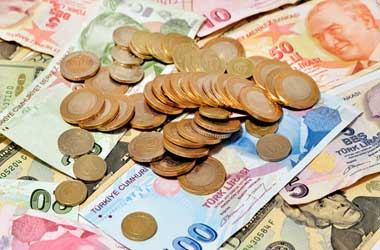
The euro fell against its peers in in in in the European sitting on Wednesday, after the European Central Bank Chief Economist Peter Praet proposed that the fresh tranche of the Targeted Long-Term Refinancing Operation (LTRO) should be debated during the March meeting.
While talking to reporters in Frankfurt, Praet hinted that “the discussion will come very soon in the Governing Council,” even though no decisions may be taken at that time. Praet said that talks related to new loan criteria was “a complicated thing, because it depends on the amount of stimulus you want to bring or not to bring.”
The new long-term financing would provide banks, which were hurt by the latest slowdown with an insurance plan. Official figures from the Federal Statistical Office reveal that for the second month in a row, in January, Germany’s producer price inflation has fallen to its lowest level in eight months.
The producer price index increased by 2.6% year-on-year in January, following 2.7% in December. Economists were expecting for 2.20% inflation. European markets remained steady as hopes for a Sino-US trade deals have persisted and British Prime Minister Theresa May has announced a revolutionary Brexiter plan to save her EU exit deal.
The investors are waiting for Minutes of of of the January Policy Meeting of the Federal Reserve for hints on policymakers’ thinking on interest rates and their balance sheet trimming strategy. The euro rose against its main opponents at the Asian session, with the exception of the pound.
The euro reversed to 125.49 against the Japanese yen, from a 2-week high of 125.94 recorded at 8:45 p.m. ET. The euro has a technical support at 122.00. Data from the Ministry of Finance of showed that Japan recorded a trade deficit of 1.452 billion yen in January.
This missed anticipations for a deficit of 1.029 billion yens following the December 56.7 billion yen deficit. After reaching a level of 1.1358 against the greenback, the euro declined to 1.1325. The euro is likely to test the support at 1.12 levels. The euro fell to 1.1340 against the Swiss franc after rising to 1.1366 at 4:15 am ET. If the euro drops further, 1.12 is seen as the next level of support.
The common currency lost gains against the pound to trade at 0.8686, down from a high of 0.8714, seen at 6:00 a.m. ET. The euro is expected to receive support in the 0.85 area. The euro dropped to a 5-day low of 1.4933 against the Canadian dollar, reversing from the high of 1.4994 reached at 8:00 p.m. ET. The next major support for the euro is at around 1.47 levels.
The European currency marginally slipped back to 1.6507 against the kiwi, from its early height of 1.6536. On the downside, 1.63 seems to be the level where the euro may receive support. On the other the hand, the euro gained against the Aussie to trade at 1.5865, after recording 1.5816 in the early Asian session. The next major resistance for the euro is anticipated around the 1.60 level.
Data from the Australian Statistics Bureau indicated that Australia’s wage prices rose 0.5% on the quarter in the fourth quarter of 2018, seasonally adjusted. That was a notch below 0.6% anticipated by analysts.




